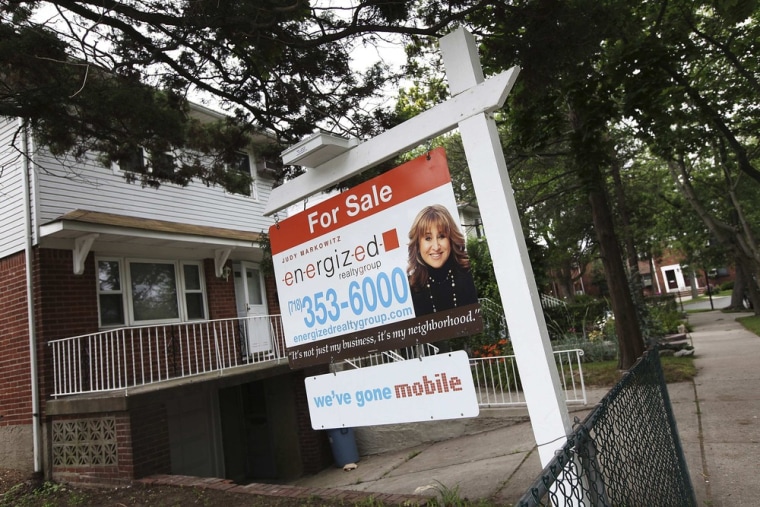Current homeowners are finally moving up, and distressed sales are making up less of the overall market—all signs of much-needed improvement in housing.
Current homeowners accounted for 54 percent of October’s non-distressed market, up from 50 percent in June, according to a new survey by Campbell/Inside Mortgage Finance.
This as the share of non-distressed sales surged to 64.7 percent, up from 55.7 percent as recently as February.
Unfortunately, first-time home buyers are seeing just the opposite, largely left out of this surge in sales and prices. Their share of the market, usually up in the 40 percent range historically, fell to 34.7 percent in October, the lowest in the Campbell/IMF survey’s three-year history.
The National Association of Realtors put their share even lower, at 31 percent.
Either way, they are the only group of buyers that have not seen their share of non-distressed home purchases rise over the past five months. The mortgage of choice for these buyers, FHA-insured loans, are increasingly tough to obtain. (Read More: Yes, Housing Starts Surge, but Rentals Are the Drivers)
“Financing of first-time homebuyers with low down payments threatens to become a significant problem in the U.S. housing market,” wrote Thomas Popik, research director for Campbell Surveys. “Fifty percent of first-time homebuyers use FHA financing, but FHA insurance premiums are increasing and underwriting is becoming more strict. Private mortgage insurance has started to fill the gap, but the long-term status of private mortgage insurance is in question pending the publication of the Qualified Residential Mortgage regulation resulting from Dodd-Frank.” (Read More: Builders Bump Up Thanks to Drop in Existing Home Supply)
Real estate agents answering this latest survey also noted that the recent hike in FHA mortgage insurance premiums is hitting first-time buyers harder because some sellers are refusing to accept offers that include FHA financing. Adding insult to injury, the FHA, after reporting a major shortfall in its insurance reserve funds, announced it would raise premiums yet again, another 10 basis points early next year. (Read More: To Stem Losses, FHA Mortgages Get More Expensive)
Lower priced, distressed properties, like foreclosures and short sales, would seem like the best answer for first time buyers, but hungry, all-cash investors are proving to be too much competition. Investors purchased one fifth of all homes that sold in October, up from 18 percent the previous month, and all-cash buyers (largely investors) made up 29 percent of all sales, according to the Realtors. (Read More: How 'Fiscal Cliff' Could Affect Mortgage Interest Deduction)
This is why, despite increasing household formation, rental occupancies continue to fall and rents to rise. Would-be first time home buyers are either choosing or are forced to rent.
